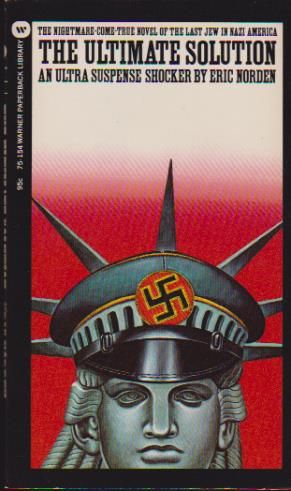J-Sun
⚡
- Joined
- Oct 23, 2008
- Messages
- 5,324
Over in Book Search, @Herb mentioned this list:
The best nine SF novels you've never heard of
I'll grant that I've only read one on that list but Moon's The Speed of Dark and Priest's Inverted World and especially Blish's Black Easter should have been heard of by most SF fans. Lem is not an obscure author but I haven't heard of the title. McMullen and Carver may be somewhat known but, again, I haven't heard of the titles. I find the observation on Carver: "Carver's other books seem rather hackneyed..." to be in the ballpark of my impression of Eternity's End.
The one book I have read is by an author everyone should know and is a title everyone should know and that's Greg Egan's Permutation City. Excellent work by a modern master.
That said, yeah, there's still some obscure stuff there in terms of the titles and some authors and it's an interesting looking list. So that made me think we could add to it and, as I indicate, one person's undiscovered gem is another's well-known classic but that shouldn't stop us from trying and, even if they do turn out to be well-known, it's still a recommendation of a good book. If all else fails, maybe folks will enjoy the original list.
If all else fails, maybe folks will enjoy the original list.
I'll think on it and come back with something or things of my own but anyone quicker on the draw can get the ball rolling.
The best nine SF novels you've never heard of
I'll grant that I've only read one on that list but Moon's The Speed of Dark and Priest's Inverted World and especially Blish's Black Easter should have been heard of by most SF fans. Lem is not an obscure author but I haven't heard of the title. McMullen and Carver may be somewhat known but, again, I haven't heard of the titles. I find the observation on Carver: "Carver's other books seem rather hackneyed..." to be in the ballpark of my impression of Eternity's End.
The one book I have read is by an author everyone should know and is a title everyone should know and that's Greg Egan's Permutation City. Excellent work by a modern master.
That said, yeah, there's still some obscure stuff there in terms of the titles and some authors and it's an interesting looking list. So that made me think we could add to it and, as I indicate, one person's undiscovered gem is another's well-known classic but that shouldn't stop us from trying and, even if they do turn out to be well-known, it's still a recommendation of a good book.
I'll think on it and come back with something or things of my own but anyone quicker on the draw can get the ball rolling.




